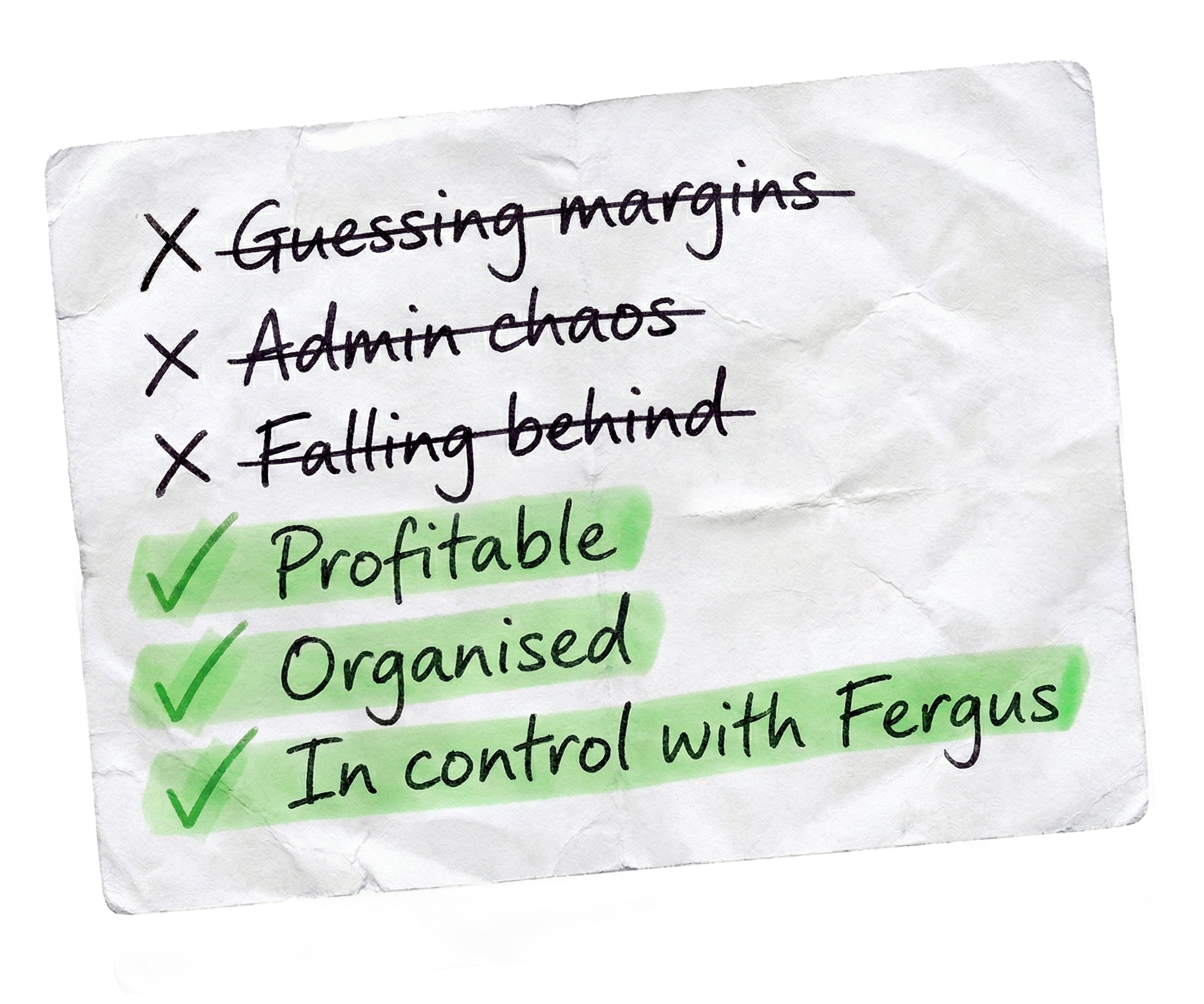In the world of trades, where every job is a new challenge and every quote can lead to a busy schedule, financial planning often takes a backseat to the day-to-day running of your business.
However, mastering the art of business financial planning is something all tradespeople should be doing.
It’s what keeps your trades business strong and growing for a long time.
This guide is here to help you:
- Take key steps towards success
- Predict the future of your business
- Get on top of cash flow
- Maximise your profits
- Reduce risk
- Grow your business
Budgeting for Tradespeople: Laying the Foundations
Budgeting is crucial to financial success.
It’s all about knowing what you need to spend money on, guessing what you might need to pay for soon, and getting ready for what’s coming down the road.
For those in the trades, making a budget means really paying attention to how much each job will cost, how much you’ll spend on materials, and how you plan out the work and pay for your team.
4 Key Steps to Financial Success
- Assess Your Current Financial HealthBefore you can plan for the future, you need to understand your present. Analyse your income, expenses, and cash flow to get a clear picture of your financial status.
- Set Clear Financial GoalsWhether it’s expanding your services, investing in new tools, or saving for a rainy day, having specific, measurable, achievable, relevant, and time-bound (SMART) goals will keep you focused.
- Create a Detailed Budget PlanAllocate funds for different aspects of your business. This should include direct costs like materials and labour, as well as indirect costs such as marketing and transportation.
- Monitor and Adjust RegularlyA budget is not set in stone. Regularly review your budget against actual expenses and adjust as needed to stay on track.
Predicting the Future with Financial Forecasting
Financial forecasting lets you make informed decisions about the future of your business.
Here’s how to do it:
- Use Historical Data: Look at your past financial performance to identify patterns and trends.
- Consider Market Conditions: Stay informed about the economic climate and how it may affect your business.
- Plan for Different Scenarios: Create best-case, worst-case, and most-likely financial scenarios to prepare for uncertainty.
Cash Flow Management
Cash flow is king for any trades business.
Effective cash flow management for trades businesses ensures means having enough money on hand to pay bills, purchase materials, and invest in growth opportunities.
Here’s three ways to make sure cash is flowing regularly into your business.
- Invoice Promptly: Send out invoices as soon as a job is completed to ensure timely payments.
- Manage Receivables: Keep track of outstanding invoices and follow up on late payments.
- Control Expenditures: Prioritise spending and avoid unnecessary expenses.
Maximising Profit Margins
Profit planning is about setting targets for your income and creating strategies to achieve them.
It involves looking at each aspect of your business to identify areas for improvement and increase profitability.
- Review Pricing Strategies: Ensure your pricing reflects the value of your services and covers all costs.
- Optimise Operations: Speed up processes to reduce wasted time, energy, and money.
- Invest Wisely: Reinvest profits into areas of your business that will generate the highest returns.
Smart Strategies for Growth
If you’re a small trade businesses, financial management can be particularly challenging.
Here are some tips to help you:
- Keep Personal and Business Finances Separate: Don’t make things tricky for your accounting. Keep things simple by sticking to these boundaries.
- Leverage Technology: Use software to automate financial tasks, manage your day-to-day, and provide real-time insights into your business performance.
- Seek Professional Advice: Don’t hesitate to consult with financial advisors to help with complex financial decisions.
Building for the Future
When creating your budget, don’t forget to allocate funds to areas that will contribute to long-term growth.
Whether it’s new equipment, additional staff, or professional development, thoughtful investment can set your business apart from the competition.
Here’s a few things to think about:
- Evaluate ROI: Consider the return on investment for any potential expenditure.
- Diversify Investments: Don’t put all your eggs in one basket; spread your investments to reduce risk.
- Plan for Retirement: Even if you’re just starting out, think about your long-term future and invest in retirement plans that suit your needs.
Financial Risk Assessment
Protect your trades business by managing financial risks.
Conduct a financial risk assessment to identify potential threats and develop strategies to mitigate them.
- Insurance: Ensure you have adequate coverage for your business assets, liabilities, and income.
- Emergency Fund: Set aside funds to cover unexpected expenses or downturns in business.
- Contracts and Agreements: Use clear contracts to protect against client disputes and non-payment.
Fergus, Your Best Friend for Financial Management
As a tradesperson, you’re an expert in your field, but you may not be a financial expert—and that’s okay.
That’s where Fergus comes in.
Fergus is a job management software designed specifically for tradespeople. It simplifies the complexities of financial management, from invoicing and job tracking to detailed financial reporting.
With Fergus, you can:
- Automate Administrative Tasks: Reduce time spent on paperwork and focus on what you do best.
- Gain Financial Visibility: Access real-time financial data to make informed decisions.
- Maximise Profit Margins: Use Fergus’s insights to identify areas for cost savings and revenue growth.
By integrating Fergus into your business operations, you can streamline your financial management and secure the future of your trade business.
Financial planning is not just about numbers; it’s about setting a course for success and peace of mind.
By following the steps outlined in this guide and leveraging tools like Fergus, tradespeople can build a financially stable and prosperous business.
Best of luck with your trades business growth!










